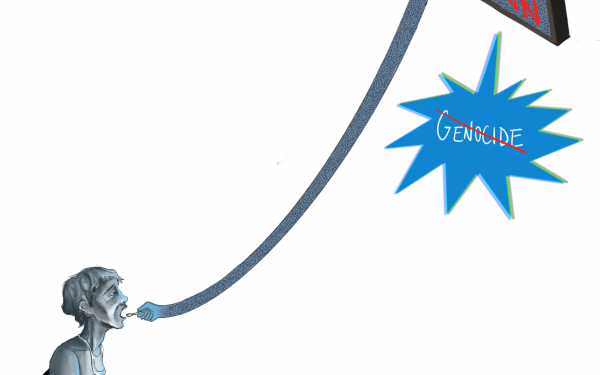Editorial: Who’s controlling you?
What is the first thing that pops into your head when you hear the word “influence”?
Perhaps you think of social media stars, the state of being “under the influence” of drugs or alcohol, or social influence exerted by powerful people and institutions.
Maybe you think of the influence of social justice movements to bring people together in community to achieve a common objective, or the power of art to influence our hearts and minds, or the legendary social figures in the past who have used their standing to implement change in the world.
As social animals, human beings are always susceptible to being swayed by external stimuli—whether personal or political. Whether it’s by our parents and our friends, our schools and our professors, our communities, our leaders, or the drive for economic or personal success—everyone is expected to tailor themselves in some way to these forces.
In today’s world, influence goes hand in hand with technology. Algorithms on social media platforms like Youtube and Twitter track your interests and keep you engaged with suggested content. Your data is recorded and used by companies for advertising purposes. Politicians use social media platforms to spread political ideologies and monitor their own popularity.
Technology can be both consolation and adversary as we seek to carve out space to live—especially in the context of the pandemic. It has been used to improve public health measures, but it has also been a vector of misinformation about the virus on a mass scale. It’s been used to connect us to our loved ones, but it’s also sown division as social media has been inundated by hatred and bigotry.
Even though it has the potential to bring us entertainment during this mundane social period, technology can also dishearten us by forcing us to compare ourselves, and our lives, to others.
It’s always important to examine the society around us and gaze upon normalized structures and systems with a critical eye. Whether as fringe as internet rabbit holes or as mainstream as celebrity culture, it’s imperative we question the points of influence that limit us—and to ask how we can define meaning in our own lives.
Now, more than ever, ask yourself: Are you a person living freely in the world, only being influenced for good and by positive forces—or are you a machine?
This article originally appeared in The Influence/Influenced Issue, published January 13, 2021.

.png)


_600_375_90_s_c1.jpg)


